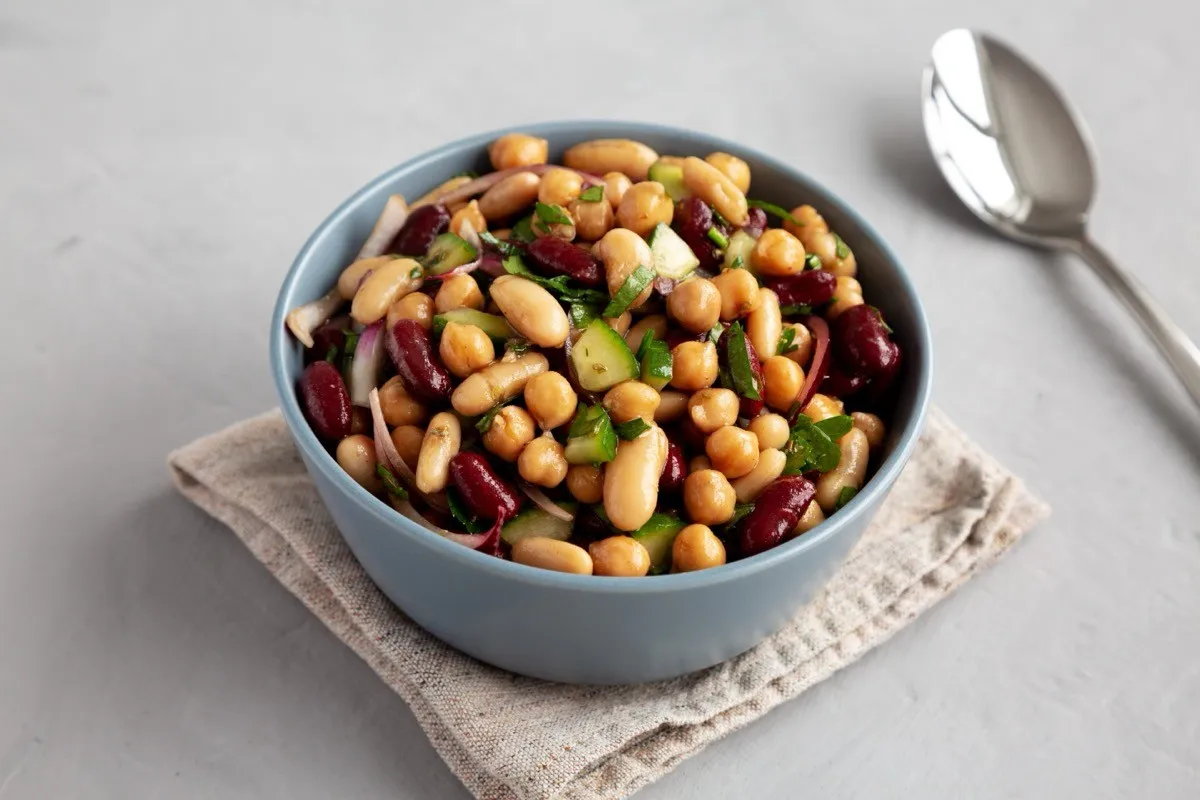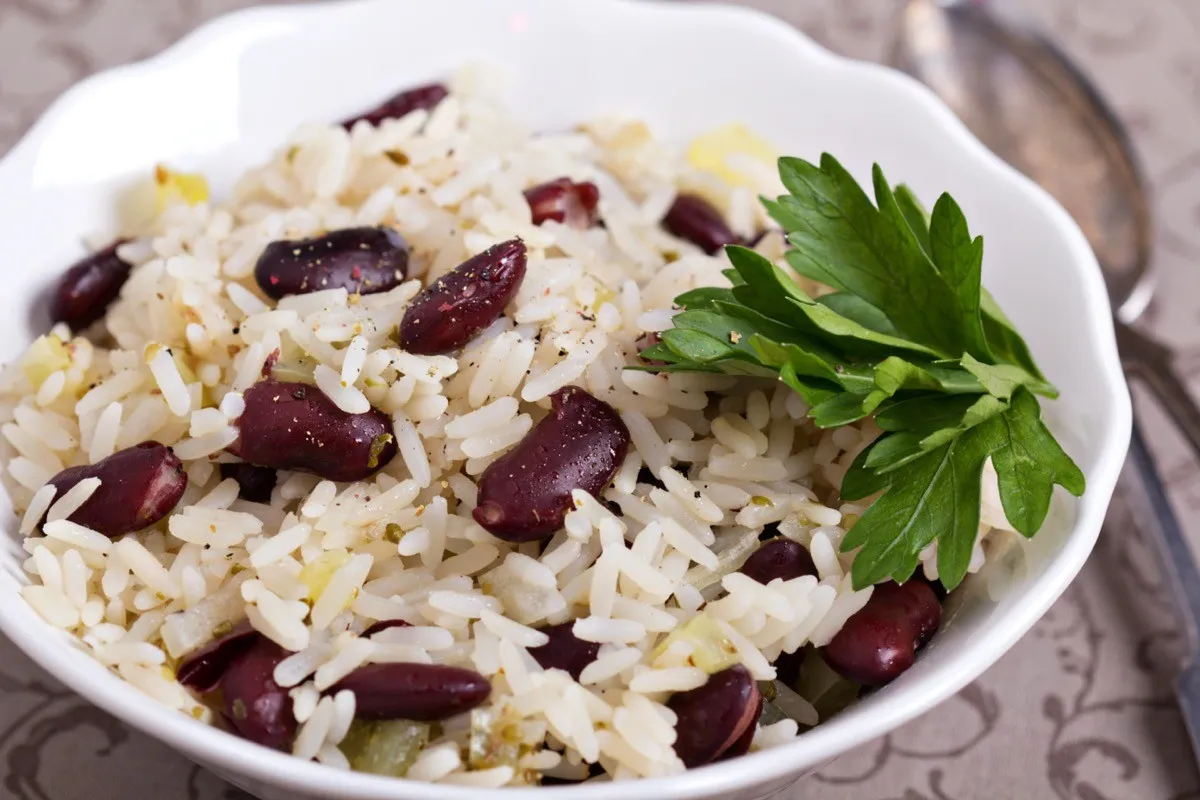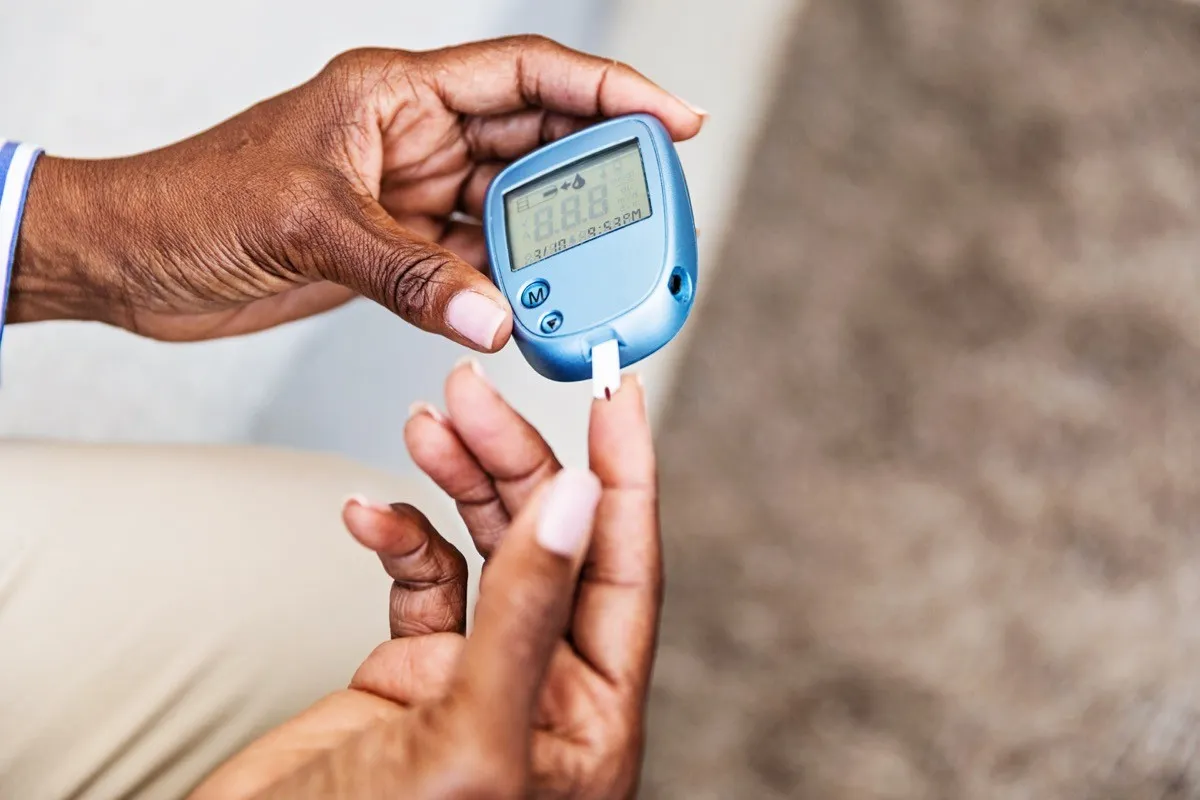9 Amazing Health Benefits of Eating Beans, According to Dietitians

Eating nutrient-dense superfoods as part of your balanced diet is a great way to improve your healthspan and increase your lifespan. Even better? You don’t necessarily need to splurge on exotic or expensive grocery items to level up your diet.
Beans and legumes are an affordable, sustainable, and nutrient-packed food that experts say can play a key role in increasing longevity. In fact, beans are considered a staple food within “Blue Zones,” or regions of the world such as Okinawa, Japan, and Sardinia, Italy, where people tend to live significantly longer lives. In these areas, people often consume beans and legumes daily, and their long life expectancy is attributed, in part, to their nutrient-dense and plant-based diet.
Wondering how eating more beans can transform your diet and your health? These are the 10 most amazing benefits of eating beans and legumes.
RELATED: This “Powerhouse” Vegetable Is the Healthiest, CDC Says—But You’re Probably Not Eating It.
1
Beans may help curb your sweet tooth.

No one food can make or break your diet—it’s all about the big picture. However, experts say that by eating beans, you may find it easier to curb your cravings and make better dietary choices.
“If you find yourself consuming more added sugar in your diet than you want to, incorporating more beans into your meal plan could be a smart move,” Sarah Otto, nutritionist and co-founder of Goodness Lover. “A 2024 review published in Nutrition Journal found that not only were diets that included beans richer in calcium, dietary fiber, iron, magnesium, potassium, and vitamin E, but they also typically had lower levels of added sugar.”
2
Beans can help lower your cholesterol.

People with high cholesterol may also want to incorporate more beans into their diets. In fact, a 2021 study found that eating one cup (180 g) of canned beans per day significantly lowered LDL cholesterol in people with high levels.
“Beans are an excellent source of fiber, a nutrient that many people don’t get enough of,” says Elizabeth Harris, MS, RDN, owner of Elizabeth Harris Nutrition and Wellness. “In particular, the soluble fiber in beans can help lower high cholesterol.”
3
Beans may help you lose weight.

Otto says eating beans may also be beneficial if you’re trying to lose weight, partly because they’re high in fiber, protein, and carbohydrates, keeping you satiated for longer after your meal.
“A 2020 study published in the Journal of Nutrition and Metabolism found that with every 10 percent increase in bean consumption per 1,000 total calories consumed, body fat was reduced by as much as 0.14 percent. The same 10 percent increase was also associated with up to a 0.13 percent reduction in waist circumference,” she says.
RELATED: Longevity Expert Says Avoid Eating the “Poisonous 5 Ps” If You Want to Live to 100.
4
Beans are good for gut health.

According to Allison Gregg, the founder of Flora & Fauna Nutrition, beans are exceptionally good for gut health.
“The prebiotic fibers present in beans feed beneficial bacteria in the gut,” she tells Best Life. “Improving gut health has impacts on immunity, hormone balance, mood, and skin health along with obviously improved digestion.”
Harris adds that beans contain a special type of carbohydrate called resistant starch.
“Instead of being digested in the small intestine, it’s fermented in the colon, producing short-chain fatty acids that support a healthy microbiome and may have other health benefits,” she explains.
5
Beans may protect against certain cancer types.

As Otto points out, approximately 1.9 million individuals are diagnosed with colorectal cancer globally each year, with over 904,000 of those individuals dying of the disease in 2022, according to the World Cancer Research Fund.
“While genetics and luck play a major role in determining cancer risk, incorporating some extra beans into your diet may also be a good idea,” the nutritionist says. “2023 research published in eBioMedicine found that bean consumption was associated with improvements in the gut microbiome and a reduced risk of recurrence among individuals previously diagnosed with colorectal cancer, the latter finding echoed by a Nutrients study focusing on navy bean consumption.”
6
Beans can reduce chronic inflammation.

Many chronic health conditions can be traced back to chronic inflammation. But eating beans can help reduce your inflammatory markers, thereby slashing your risk of chronic illness.
“As plant-based foods, beans are rich in anti-inflammatory antioxidants and polyphenols. These important compounds help prevent our cells from becoming damaged by oxidative stress and help reduce inflammation throughout the body,” explains Stephanie Wells, RD, a Registered Dietitian and owner at Thyme to Go Vegan Nutrition Services.
She adds that besides reducing cancer risk, which is often raised by oxidative stress, eating beans may also help reduce the risk of developing chronic diseases such as heart disease, insulin resistance, polycystic ovary syndrome, and more.
RELATED: This Food Can Trigger a 15% BMI Weight Loss—But You’re Probably Not Eating It.
7
Beans are full of important nutrients.

When you’re grocery shopping, beans give you the greatest bang for your buck. Though they’re modestly priced, they’re positively packed with the vitamins, minerals, and other nutrients your body needs.
Harris notes that besides offering a balance of protein, fiber, healthy fats, and carbohydrates, beans are also brimming with potassium, copper, phosphorus, iron, B vitamins, and other important micronutrients.
Phytochemicals, plant-derived antioxidants, are another nutritional benefit of eating more beans. Harris describes these as “chemical compounds that provide health benefits above and beyond the nutrients in that food.”
8
Beans are a great source of plant protein.

It’s important to get plenty of protein in your diet, but the source matters. While meat and dairy—two of the most commonly consumed protein sources—tend to be high in saturated fat, beans offer a lean source of protein without heart health drawbacks.
“A staple crop in countless cultures, beans are an affordable and fiber-rich source of protein that pairs well with equally cost-effective rice to provide an ideal balance of proteins and amino acids,” suggests Otto.
9
Beans may help stabilize your blood sugar.

According to the U.S. Department of Agriculture (USDA), some research suggests that eating black beans can help improve insulin resistance and stabilize blood sugar.
“Beans are a low glycemic food, meaning they cause a slower, smaller rise in blood sugar compared to higher glycemic carbohydrates,” Harris explains. “Since beans are high in fiber and protein, adding them to meals can also help slow the absorption of sugar into the bloodstream, making them a great option for most people with prediabetes or diabetes.”